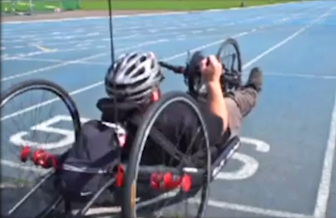Autonomic Dysreflexia
7 Items
Exercise and SCI
3 Items
Bladder and Bowel Management
7 Items
Your skin after SCI
5 Items
Support for Family & Friends
3 Items
Growing up with SCI
3 Items
Before you exercise – things to watch out for
Discuss your exercise plan with your doctor or rehabilitation team
- They will ensure that it is appropriate for you and will not cause you any harm.
- Be sure to inform them of any medication you are taking so that they can take into consideration the effects of the medication when assessing your exercise regime.
- Make sure your body temperature is stable – While you exercise, your body temperature may fluctuate for no apparent reason.
You can prevent your body from experiencing extreme temperature changes by taking the following steps:
-
- Dress in layers and adding extra layers if in a colder environment
- Wear comfortable and suitable clothing for exercising
- Drink plenty of fluids, preferably water
- Use a fan and/or water spray to keep your body cool
- Exercise in the shade
- Don’t exercise if you are feeling ill – and that includes having a bladder infection, pressure sore or unusual spasticity
In planning your exercise regime you need to be aware of other important physical differences as a result of your spinal cord injury, such as an appropriate gym environment.
- If you are exercising in a health club or gym with non-disabled instructors, it is very important that you make them aware of these differences.
- Take a look at the Gym Buddy Scheme organised as part of the Inclusive Fitness Initiative run by the English Federation of Disability Sport.
Read more about the Gym Buddy Scheme here.
Things to watch out for
- While you are exercising, you might get a headache, chest and joint pain, cramping or high blood pressure.
- These may be signs of mild dehydration or poor nutrition, or they may be symptoms of something more severe like autonomic dysreflexia
- Other warning signs to watch for are profuse sweating, blotching of the face, neck, chest and arms, nasal congestion, and dilated pupils.

DO NOT ignore any of these symptoms
- If you get any of these symptoms, stop the exercise session and talk to your doctor about them before you take it up again.
Interview with Andrew Trollope (Physiotherapist)


